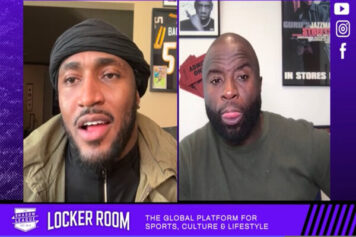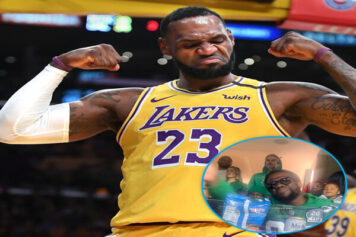LeBron James is arguably the most prominent athlete in sports not named Lionel Messi. That comes with consequences because no matter how hard you try; scandal is only one relationship away unless your circle is airtight. James has ducked real problems to his positive athletic brand.
Still, recently released Drug Enforcement Agency documents reveal that some in James’ circle were part of the largest U.S. sports doping scandal. Labeled Operation Strikeout by the DEA, the case which happened a decade ago netted MLB stars like Alex Rodriguez and Ryan Braun among a total of 21 MLB players while landing mastermind and self-described biochemist Tony Bosch in federal prison for four years.
New names were found in the more than 1,400 pages of unredacted federal investigative documents, like former heavyweight boxing champion Shannon Briggs. Not all were athletes. Some were their handlers.
Enter LeBron James, whose reported friend and longtime business manager, Ernest “Randy” Mims, and trainer David Alexander are revealed to have been subjects of the investigation.
Watch The Company You Keep
Although federal authorities reportedly said neither Alexander nor Mims gave any PEDs to James or athletes, their relationship with him piqued the DEA’s interest in James. However, in the end, he was dismissed as part of the investigation.
“There was never any indication that LeBron James did anything wrong,” the lead DEA investigator said, per ESPN.
However, Mims purchased testosterone and metabolism-boosting injections and a blood draw by an unlicensed phlebotomist for personal use. He bought the Schedule III controlled substance from Carlos Acevedo, a former Bosch business partner turned independent PED “entrepreneur” and then federal informant.
Authorities claim Acevedo said Mims paid him $300 for the substances and stayed on as a “client” for almost two months before stopping. Mims eventually complained about the drugs not making him feel well and was not charged with a crime.
No Face. No Case.
“[He’s] apparently an overweight guy,” said Kevin Stanfill, one of the DEA agents present for Acevedo’s interview on July 24, 2013. “And he went to him [Acevedo] about possibly getting some testosterone treatment stuff that they were giving a bunch of overweight guys in Miami, and they dropped a lot of weight.”
Alexander initially paid Acevedo for PEDs but later made a deal to receive substances for free in exchange for client referrals, which is how Acevedo met Mims. Alexander steered no athletes to Acevedo in a dozen referrals or provided PEDs to athletes.
The whole instance is more about the company you keep than LeBron James doing anything wrong. Still, when it comes to the feds, they are watching everyone near an investigation, especially if you can include LeBron James as a friend.



